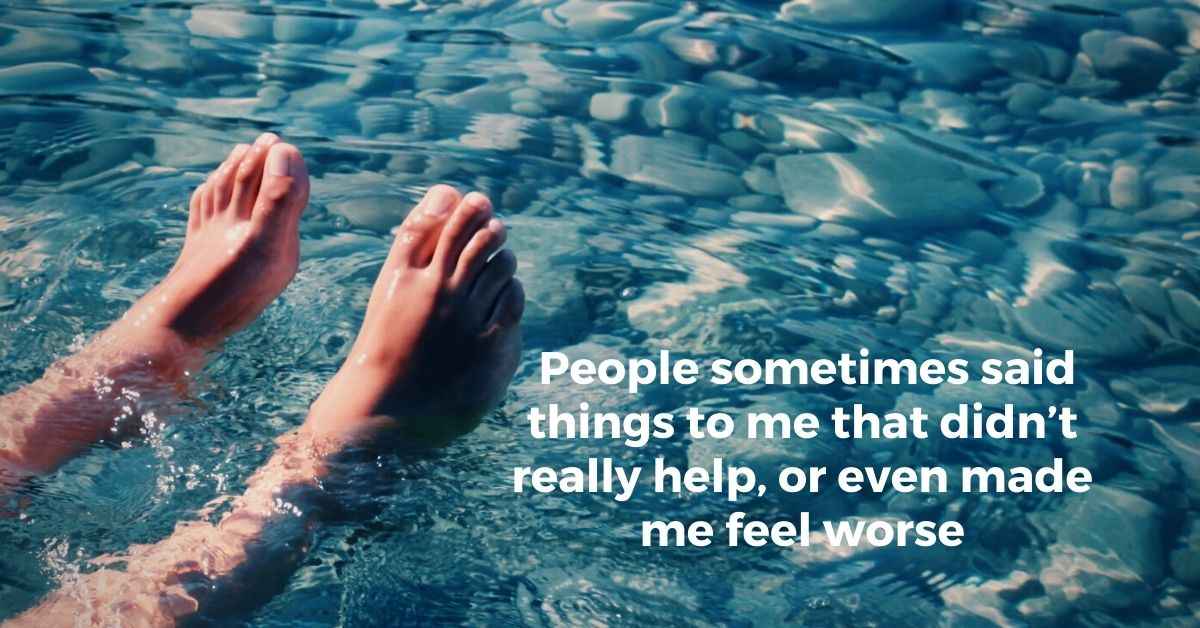Reviewed By Pamela Kirkpatrick - Senior Accredited NCS & Registered Member MBACP Adv. Dip.
Do's & Don'ts From a Counsellor Who Recovered From Bulimia
14 October 2022
People can experience disordered eating and eating disorders for a variety of different reasons, and sometimes feel ‘triggered’ to fall into unhealthy patterns with food.
As somebody who suffered from an eating disorder when I was younger, I could really see how frustrating and challenging it was for my family and loved ones to know how best to support me. And I really felt that frustration and challenge too.
People can experience disordered eating and eating disorders for a variety of different reasons, and sometimes feel ‘triggered’ to fall into unhealthy patterns with food.
A common theme in society right now, is often being unhappy with our body image and feeling the pressure of ‘perfection’ played out to us via social media. Sometimes too, people feel like life is difficult and that so much of it is out of our control, that they turn to something they can control – their eating.

What to avoid
I can say from my own experience, that people sometimes said things to me that didn’t really help, or even made me feel worse. Things like…
- “You look lovely as you are, you don’t need to change”
- “You’re so in control”
- “How do you manage to eat so little”
- “You look well”
- “I didn’t see you eat much at lunchtime / dinnertime, is everything ok?”
- “You’re beautiful you don’t need to change”
- “You look like you’ve lost weight / gained weight”
I know that the people close to me really felt that they were saying something helpful, and that they really wanted to say “the right thing”. At the same time, I could see that approaching someone to talk about their eating disorder would be very daunting too.
Talking about eating disorders can feel like a little bit of a minefield so I thought it might be useful to share some things people did that really did help me.
Tips for supporting someone with an eating disorder

- Be there – Tell people you’re always there for them if they need you. Don’t bring it back to anything specific about their eating or weight, so they don’t feel pressured or cornered. Instead just really let them know that you are there for them, and that with you they have a safe space to talk.
- Be patient – Understand that people don’t always chalk up what they are experiencing as being an eating disorder straightaway. I remember for a year I was in complete and utter denial. I made constant excuses, and if I’d have admitted there was an issue, I would never have believed, or named it for what it was – bulimia. That realisation for me took time, and for my loved ones, took patience.
- Be helpful – If a friend is open or has been diagnosed with an eating disorder, ask them if there is anything you can do to help them through it. Give them space to ask for help but also make sure they know it’s there.
- Be informed – If you are finding it hard to understand your loved one and their eating disorder, give them the time to talk you through their experience and really try to hear them. There are also lots of helpful articles online about eating disorders, that might help you better understand and support your loved one, and there are organisations that can help family and friends too.
- Be yourself – If you have a healthy relationship with food, model that to them. It doesn’t mean you have to discuss weight, or diets in front of them, but have a healthy eating regime and mealtime plan or placement in place that provides a role model and routine for them.

Just as you feel you’re struggling – remember that the person experiencing this is struggling too. Be patient and kind to yourself and your loved one, and know that there is support available.
Get Inspired Further
eating disorders supporting someone else
Eating disorders affect not only those who are unwell but the people around them too.
eating disorders supporting yourself
Eating disorders are serious mental illnesses. There are a lot of misconceptions around them, including what they look like and who can get them, and they can be extremely isolating.
how can beat help me
Beat provide support services for anyone affected by an eating disorder, including those caring for somebody.



